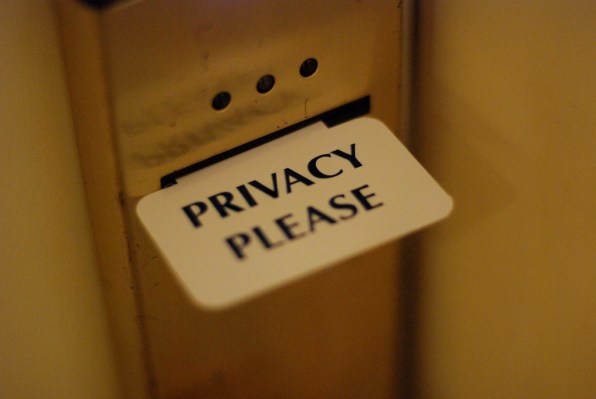The Electronic Frontier Foundation released what it called a “stronger” Do Not Track setting yesterday. But what does that actually mean for your day-to-day privacy on the web?
To understand it (or at least try), I got on the phone with Casey Oppenheim, co-founder and CEO of privacy startup Disconnect, who worked with the EFF to develop the new standard. Oppenheim explained that while the W3C is working to develop its own Do Not Track standards, they’ve focused on how users can signal their desire not to be tracked.
What’s missing, he said, is a clear sense of how publishers should behave once they know someone doesn’t want to be tracked: “The advertising industry has essentially argued that ‘do not track’ means ‘do not target.'” In other words, he suggested they’re interpreting Do Not Track to mean, “It’s fine to track everything the user does,” as long as you don’t use that data to target ads.
On the other hand, to abide by the the EFF policy (there’s a “human readable” summary here), once a user indicates that they don’t want to be tracked, a website should not collect unique identifiers like cookies and fingerprints, and they should not keep logs containing bowser name and IP address for more than 10 days — except when it’s required by law or it’s necessary to complete a transaction.
The initial partners who’ve signed on to this standard include publishing platform Medium, analytics company Mixpanel, search engine DuckDuckGo and AdBlock. Over time, Oppenheim is hoping more companies opt in to the policy and use it to indicate to users that they’re privacy-friendly.
One of the big questions, though, is whether the big players like Google and Facebook will have any interest in adopting these standards. Oppenheim suggested that they will if ad blocking continues to rise. (Note, though, that its biggest growth seems to be outside the U.S.)
Naturally, Oppenheim said his team is working to build Do Not Track into the Disconnect ad blocker. That way it can take a more nuanced approach and let ads through for publishers that abide by these rules.
“The market is speaking,” he said. “People are not comfortable with the current online ecosystem.”
But are better privacy controls going to solve that? I worried that many people using ad blockers care less about privacy – they simply don’t want to see any ads at all. On that count, Oppenheim admitted, “You could be right.”
